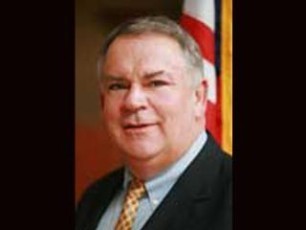The plan marks an about-face for House Speaker David Ralston. Ralston had long defended Georgia's existing system, which allows lobbyists to spend as much as they want on lawmakers so long as those expenditures are publicly reported.
Ralston's position changed after roughly 81 percent of Georgia voters, more than 1 million people, voted this summer in favor of limiting lobbyist spending in nonbinding questions on the Republican and Democratic primary election ballots.
``It is essential that the public trust be maintained and that citizens have confidence in those they elect to govern,'' Ralston said during a news conference.
His plan would generally prohibit lobbyists from spending money on individual state lawmakers and elected officials. But it would not entirely prohibit lobbyist spending.
Lobbyists seeking to influence lawmakers could still pay for food, beverages or registration at events when legislative committees or subcommittees are invited. Those committees have major sway in the Statehouse and decide whether legislation worth millions of dollars to industries and other interests gets rewritten, quashed, or sent to the House or Senate floor for a vote.
In another exception, lobbyists could pay for the travel, lodging, meals and beverages for public officials who are attending meetings that relate to their official duties. That travel can be a lucrative perk. In one notable case, a lobbyist paid $17,000 to take Ralston, his family and two others on a trip to Germany in 2010. Closer to home, industry and professional groups commonly invite lawmakers to annual meetings at vacation destinations such as the Georgia and Florida coasts.
Supporters of limiting lobbyist spending were concerned about provisions of Ralston's bill.
``The talking points say we get a complete ban,'' said William Perry, executive director of Common Cause Georgia. ``And what we get is nowhere near a complete ban.''
The legislation would require more people to register as lobbyists and report their spending, a position unacceptable to many who have advocated for limits.
Under current law, anyone who spends more than 10 percent of their time on lobbying activities or spends $1,000 on more annually on lobbying expenses must pay $300 to register as a lobbyist. Ralston's bill would force anyone advocating for or against legislation to register unless they are public officials, local residents reaching out to their hometown politicians or meet several other narrow exceptions.
Sen. Joshua McKoon, R-Columbus, who has pushed for setting limits on lobbyist expenditures, said Ralston's bill was a good sign since the General Assembly is moving toward setting some rules on lobbyist spending. Still, McKoon said the proposal contained spending loopholes and would represent an unconstitutional restriction of free speech.
McKoon said he was considering whether to introduce Senate legislation that would address those concerns.
``The effect of this would be to severely chill citizen activism to the point that you would essentially be evicting those from the Capitol who don't have $300 to petition their government and have their voices heard,'' he said.
The state Senate earlier this year passed a weak internal rule that prohibited lawmakers from accepting lobbyist gifts worth more than $100. That rule contains many of the same loopholes in Ralston's bill.
His legislation would also allow the state's ethics commission to set administrative rules and require state lawmakers to more quickly report campaign expenses at the start of the annual 40-day legislative session.

http://accesswdun.com/article/2013/1/257736
